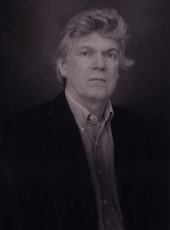
The Unwritten Rules in Japanese Baseball

The Unwritten Rules in Japanese Baseball
by Japan Times (Nov 4, 1977)
Digitized by Jessica Suchman and Catherine Nissley
The 1977 professional baseball season in Japan ended Oct. 27 when the Pacific League champion Hankyu Braves defeated the Central League pennant winning Yomiuri Giants, four games to one, in Japan's version of the World Series. But at least there will be no rest for the Giants.
Although the Giants had captured the Central League pennant under manager Shigeo Nagashima for the second straight year, this time with an overwhelming 15-game lead over the second place Yakult Swallows, they were humiliated for two successive years by the Braves.
This time, the prestige of the most popular ball team in Japan suffered immeasurably because the Giants were heavily favored to win the professional baseball championship of this country in the best of seven game series.
Thus, the proud management of the Giants has already announced a busy training schedule for the players in November and plans for bolstering the club's farm system, focused on an increase in coaches and man-to-man instruction. All this is preparation for the 1978 season.
In the U.S. major leagues, the off season sees the players on vacation or indulgence in side jobs until the next year's spring training.
Although Japanese ball players sign annual contracts with the club owners, they virtually are employees throughout the year.
In his book, "The Chrysanthemum and the Bat," Robert Whiting, a graduate of Tokyo's Sophia University who has lived and worked in Asia for a number of years, gives a fascinating account of the differences between the U.S. major leagues and Japan's professional baseball.
Whiting says that a Japanese player is not only expected to report early for spring training but when the regular season and the Japan Series are over, he can still look forward to the fall series of exhibition games through November. His contract ends on Nov. 30 but is often expected to get together with teammates for special training sessions.
The author says that Bushido, the samurai code of conduct, has a profound influence on Japanese baseball, prescribing rules of training and playing utterly different from the major leagues. He writes: "American players who come to Japan quickly realize they have entered a new world. For some, it is fascinating and exciting; for others, exasperating and occasionally devastating."
The baseball code stresses demonstration of fighting spirit as a must for players, even to the extent of disregarding their own safety and health. Strangely, on the other hand, the code prohibits displays of temper on the field. "It is bad manners to break bats or helmets or to argue with the umpire," Whiting writes.
In addition, it is poor taste to spit or chew gum at the plate. Spiring youth is expected to emulate Japan home-run king Sadaharu Oh, who, as one paper pointed out, conducts himself like a gentlemen. When he strikes out, he break into a smile and trots back to the bench.
Whiting says that "Japan may be the only pace in the world where a losing team feels obliged to offer its followers an apology. But what else would you expect in a country where a team sent out thousands of new year 'apology' cards as the Yomiuri Giants did in 1975 when they finished in the cellar."
Whiting gives an interesting description of the Japanese baseball fan. Where else in the world would a sellout crowd of 50,000 go to a ball game in the opening week of the six-month season? He says "The Japanese fan is probably the most sophisticated in the world. He will sit through a three-and-a-half hour game without getting bored or missing a single pitch and complain if the game is called a tie because of the curfew."
Undoubtedly, Whiting worked hard in getting his data. He gives an interesting account of the professional baseball in 1934. Anecdotes of American players in Japan and accounts of past Japanese stars are worth reading.
It would be most interesting to see the reaction of Japanese baseball officials and players to a Japanese language edition of Whiting's book.
This work is licensed under a Creative Commons License.
Some rights reserved.
